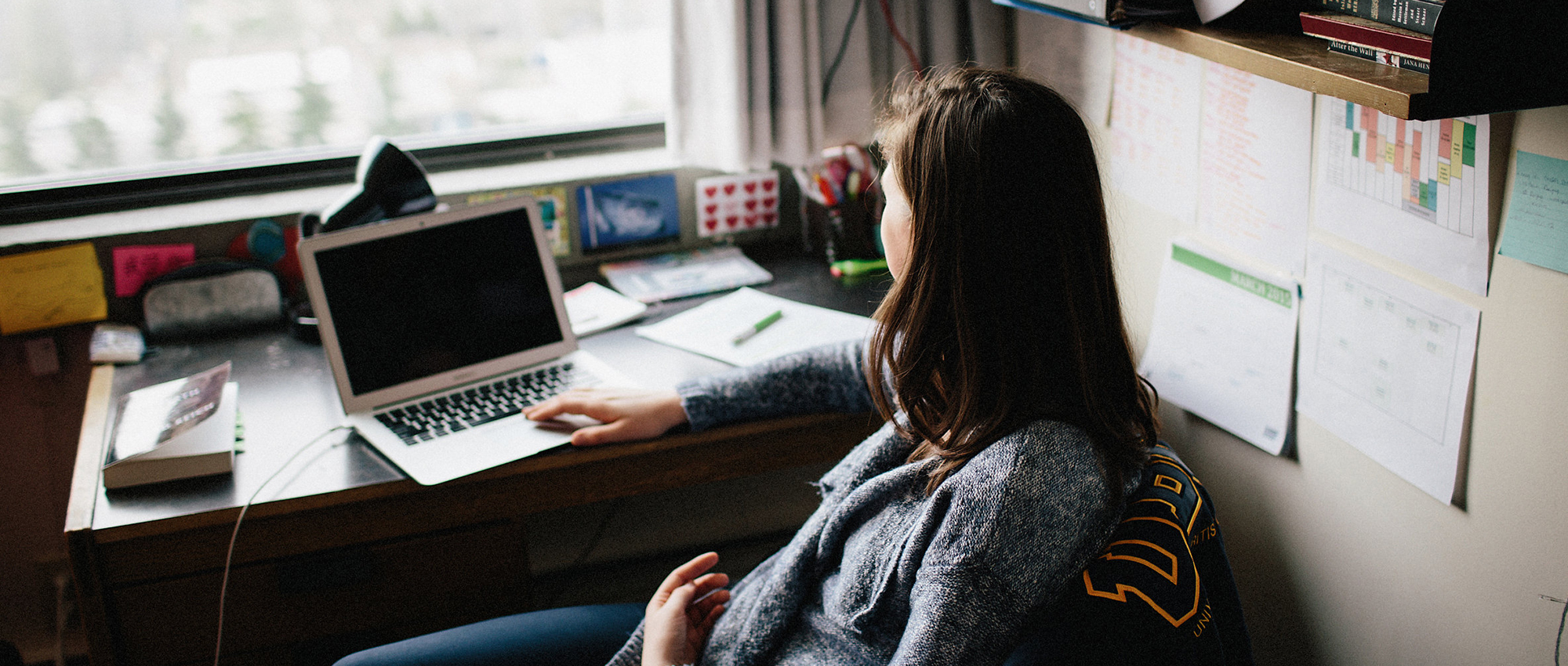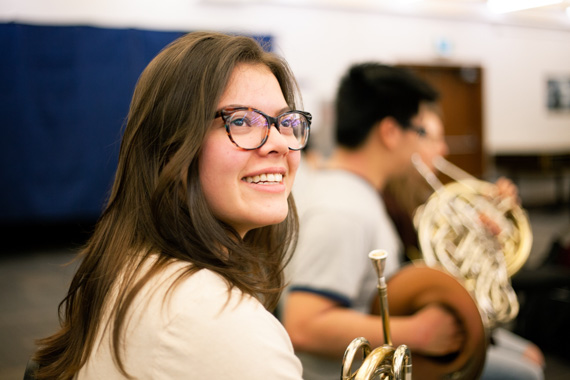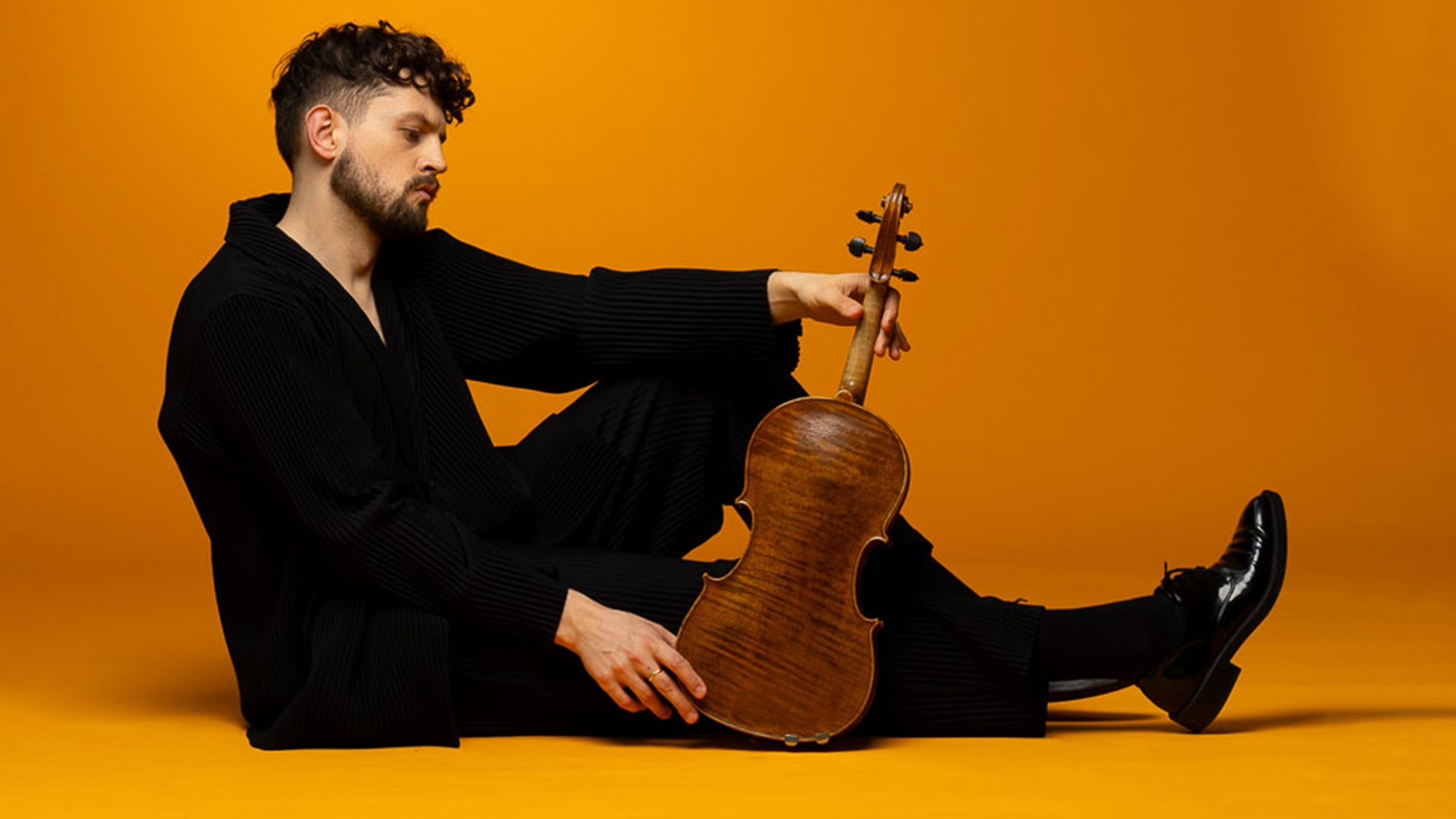

This spring, the COVID-19 outbreak unexpectedly introduced UBC students to full-time online learning. Three students in the Faculty of Arts tell us what this change has looked like for them — from watching early-morning lectures in bed to collaborating on virtual performances.
Brenda González Córdova
Degree: BA in Economics with a minor in Philosophy
Online course: Creative Writing 200 (Introduction to Creative Writing)


So far, how have you found your experience with online learning?
At the beginning I was very excited because I had early-morning lectures and I could attend them without leaving my bed. A week after doing that, I realized that affected my energy for the rest of the day, so I had to change my routine. Because the lectures were recorded it was easy to move around my schedule. After a few days of experimenting, I found what works best for me (usually watching lectures as I eat breakfast).
I enjoyed not having to commute every day because it gave me extra time to do the things I usually don’t have time for, such as exercising and being creative. Online learning has required adaptation, but ultimately, I have been able to enjoy the advantages of it.
What are your professors doing to support you?
In my class, the instructor was very flexible with deadlines and exams dates to make it easier for students in different time zones. They also talked a lot about the challenges of learning online and they asked us to reach out to them if we were struggling. The transition to online learning was also new to instructors, so moving to online courses was a collective effort. I think the most important thing my profs did for support was being open to feedback and ready to support students who were struggling.
How are you maintaining community with fellow UBC students through the virtual sphere?
Through the chat functions on Collaborate and Zoom, students are not only maintaining but creating new communities. Usually, in-person classes are quiet, and conversation only happens when the instructor facilitates it. In online courses, people can make respectful comments and jokes, ask questions and react without interrupting the class. In my class, being able to post on the chat really made me engage more with the course content and made me feel more comfortable asking questions.
Once we got to know each other in the chat, we expanded our conversation to a Facebook group. I imagine the chat was like having conversations in class and Facebook was like having conversations in the hall before or after class. These online resources really enhanced community and in a way made it better than in person.
Do you have any tips for new students to help them make the most of their online courses?
- Create a dedicated space for schoolwork that’s separate from the space where you relax. This helps to give your mind a break as well as your body.
- Make a routine that works best for your style of learning. One of the good things about online learning is the possibility of making up your own schedule.
- Have dedicated time every day to fully relax. Sometimes work and relax time get mixed up because work is from home — this can mean that you are never fully out of work mode. Having dedicated times for self-care really helps to let go of the stress of school and recharge energy.
Hanna Van Inwegen
Program: Bachelor of Music and Bachelor of Education Dual Degree
Online courses: Music 100 (Music Theory), Music 206 (Aural Skills), Music 221 (Music History)


What are some of the most innovative or interesting aspects of your online courses?
An interesting experience I’ve had with online learning came in the form of a virtual performance. I got the chance to contribute (via a recording) to a virtual performance for UBC’s spring graduation ceremony. Similarly, I’ve been able to do some of my own multitrack recordings for fun. It has been interesting to experiment with these performance styles and see the creative ways people are able to present ensemble works, especially as these techniques are growing in popularity as ways of collaborative music making.
How are you maintaining community with fellow UBC students through the virtual sphere?
Luckily, it is very easy to stay in touch with people over social media, text and Zoom, so I have been able to contact my friends and classmates comfortably online. More than any other time in my life, I feel comforted by the fact that so many people are facing the same challenges that I am. Being able to talk openly with my colleagues about our mutual confusion and acclimation to this new lifestyle and academic setting has been particularly reassuring.
What tips would you give to students who are taking online courses in programs that, like Music, are typically taught in person?
Find ways to engage with the course material with other people! I enjoyed talking about my coursework with my family when I wasn’t able to have a real-time conversation with a classmate. Explaining new concepts can also be helpful for your own understanding and retention of information.
If you have courses that require physical demonstration of skill (like music, visual arts, theatre, giving speeches or presentations, etc.), try sharing pictures or videos of your work with friends and family or on social media! This will give you a chance to practice performing and presenting.
Reina Pino Fernandez
Program: BA in International Relations and Sociology
Online course: Sociology 382 (Sociological Methods: Qualitative Research)


What have been the most positive aspects of learning remotely?
Now that professors as well as students know what we are dealing with, there are positive aspects to learning online. For most classes, you choose when to watch the lectures. That gives you the flexibility to allocate your time in ways that really work for you. In addition to that, you can re-watch the lectures as many times as you want which can help you catch on to details that you might have missed the first time going through it. Last but not least, you can attend the class from the comfort of your bed!
What are your professors doing to support you?
I appreciate how responsive and understanding my professors are being. Most professors are really trying their best to stay in contact with the students. Their answers to emails are very fast and they are willing to hold office hours whenever we are struggling with something. Moreover, extensions are a great help for a lot of students who might be having a difficult time adjusting to online learning and for those who, unfortunately, have had to deal with COVID-19’s consequences.
Do you have any tips for new students to help them make the most of their online courses?
You really have the time to complete all of your assignments and responsibilities. It is only a matter of organization and asking for help if you need it. Go for walks to clear your mind. It is weird to have to watch a lecture, complete an assignment and write an exam in the same room. I have found myself struggling to notice the difference between all of them, and I took more time than usual to finish my exam because I thought I had all the time in the world. Take breaks and enjoy what is around you!
Your classes may be online, but you’re not alone. Learn more about staying connected with your peers and getting the most out of your experience learning online.


